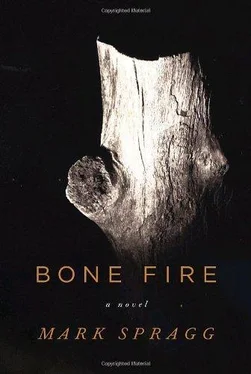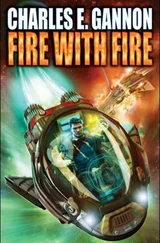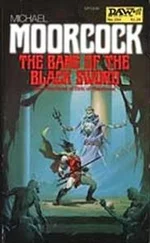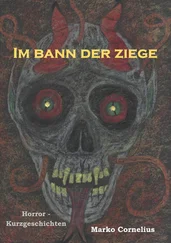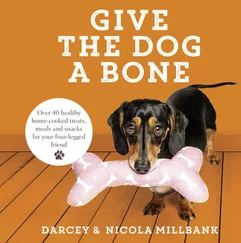They found a used-furniture store downtown, where she picked out a walnut dresser and matching armoire after checking her diagram of the cabin to make sure they’d fit.
The owner and the large, docile boy introduced as his nephew got the pieces loaded up against the truck’s cab with any surfaces that might rub padded with sheets of cardboard. Einar roped it all snug, the lines standing taut.
“I never could tie a knot worth spit,” the owner said, standing back with his hands on his hips, still short of breath from loading the furniture.
“If you live around horses,” Einar said, clearly pleased, “it’s not something worth bragging about.”
The man slipped a business card from his wallet, holding it out to Marin. “You folks drive careful, now,” he said.
When they got in the truck she asked if he was hungry yet, and he said, “Fuddruckers.”
“That sounds like a strip joint.”
“Well, it’s not, unless it’s moved. Griff and I ate there last fall when we were up here delivering a bull to a man from Molt. They’ll let you build a hamburger sandwich any way you want.”
“Do they have salads?”
“They have lettuce and tomatoes and onions, I know that much. And they sell beer. It’s been awhile since I’ve had a cold beer.”
She was pulling into the street. “I’m disappointed it’s not a strip joint,” she said.
After she’d had her salad, watching him drink a beer and eat a burger as large as her hand, she checked a phone book again. They drove to a store on King Avenue, where they lay down, one after the other, on half a dozen mattresses before she found one that suited her.
“We ought to get you a comfy chair while we’re here,” he said. “Something you might sit in in the evenings.”
He turned to find a clerk and felt the carpeting fall away, and a sudden panic rose, crowding the air out of him. He lurched to the side with his arms waving, thinking, Oh, my God, not now, we were having such a good day. There was a sharp and spreading pain behind his left eye.
He felt someone grip his elbow, and when he turned around an old woman was standing at his side, mouthing something in a language impossible to understand, some guttural phrase that sounded like a small dog barking, and he wondered if she was from a race of people who breed with beasts. “Where am I?” he screamed, watching her eyes fill with tears.
“Einar,” she called, her mouth moving slowly, but at least she knew his name and she smelled familiar, like something from home. Unlike everything else in the store.
Then he was standing behind the foreign woman, the two of them watching the man she had by the arm stagger and fall, a standing lamp going over with him. All of it was as slow and silent as some movie with the volume turned down, but he felt unbounded and terrifically happy, and then he was on his side, the fluorescent lighting burning his eyes, every sound a knifepoint. He struggled to his knees and, with the woman’s help, to his feet again. He could hear his teeth grinding, and he stepped away from her, one foot at a time, feeling for the edge of the world where it dropped off into darkness, the thin crust crumbling beneath him.
Since there were no windows in the room, he couldn’t determine whether it was night or day. A tube was taped to the back of his hand, his arms and chest bare. His sister was asleep in a chair by the side of the bed. He tried to reach out to her, but there was an unexpected heaviness in his arm. His head throbbed, and he thought he must’ve fallen. The whole building hummed. He could feel it in his shoulders and back, in the back of his legs. He pushed up in bed, and when Marin opened her eyes and saw him, she stood out of the chair.
“I want to go home,” he said. The words sounded like a slurred, off-key lullaby.
But she bent down over him, holding her cheek against his, her hand cradling his head. “I know you do, sweetheart,” she said.
GRIFF HAD BEEN awake thirty-six hours and now it was after midnight again, the surrounding darkness flashing with unexpected bursts of pastel light. Mulberry, rose and amber. She’s been this tired before.
She knelt at one of the buckets of water she’d carried up from the creek and immersed her head until she was out of breath and sat back gasping. She felt raw, jittery, like she might start cackling and not be able to stop.
She stared down at her forearms, expecting the skin to be split and weeping, but it was just spotted with pinesap, charcoal and clay. She pushed herself up against the rim of the bucket and shuffled to the front of the kiln, where the yellow bricks throbbed with heat.
At dawn he’d said: “You can sleep now. It’s my shift. I’ll stay.”
“We already know that’s a lie.” She’d been standing by the hammock pulling her clothes back on. She’d meant it to sting. Then she asked him to leave. Well rested. Well fucked. This firing was hers.
She pulled on the thick canvas gloves, opened the door to the firebox and laid in the split pine for this last stoking. Her shoulders and knees ached and her ears rang with the fresh roar of the fire. The heat made her stagger.
When the box was filled she latched the door and stripped off the gloves and began mixing the sand and fireclay into a wet slop, one bucket at a time.
She circled the kiln, mudding up the spyports and ventholes and finally the firedoor, careful not to burn her hands. She shut the damper down. She could hear the wet clay sizzling against the metal door, the fire huffing for oxygen. Two days to cool, maybe two and a half, and the colors will be set into the ware. She was so tired she drooled, wiping at her mouth with the back of her hand.
She upended the remaining bucket of water over her head and stood there sputtering, shaking her head, trying for a last burst of clarity. Just enough to get home. She put the lanterns out and picked up her thermos and Einar’s old black lunch pail. The kiln groaned in the dark.
She stumbled down the trail out into the meadow above the house and finally across the porch. She stood leaning into the front door, the exhaustion spreading like a drug, but when she stepped inside she could feel their absence like a second bucket of cold water. She didn’t need to check the rooms, just stepped back onto the porch and swept the beam of her flashlight over the workyard. The truck wasn’t there. Oh, God, she thought.
She stood weaving at the table in the hallway, staring down at the blinking message light. She pressed the button.
“Griff, this is Marin. Your grandfather’s all right. He’s had a stroke, but a very minor one. We’re at Saint V’s. He’s resting now so please don’t call back tonight. I’ll call in the morning. About eight. I love you, and he really is going to be all right.”
She sank to the floor, lying over on her side just a minute to rest. A shower would bring her back, a pot of coffee, and she’d be in Billings in three hours, tops.
She woke with the kitchen linoleum cool against the side of her face, then remembered where she was. It was just starting to get light. Five-thirty. She listened to Marin’s message again and called Paul. There wasn’t anyone else she could think of.
“It doesn’t mean he’s going to die,” he said.
She held the receiver away, pressing it against her thigh, then sat at the kitchen table. She could feel her heart drumming in her chest.
“Are you okay?”
“I had to sneeze.” She didn’t want him to know her whole body was buzzing. Like it was filled with birds trying to fly out in every direction. “Marin said she’d call back this morning.”
“I’m coming over.”
“All right.” And then: “Don’t say anything to anybody. Not even McEban.”
Читать дальше
